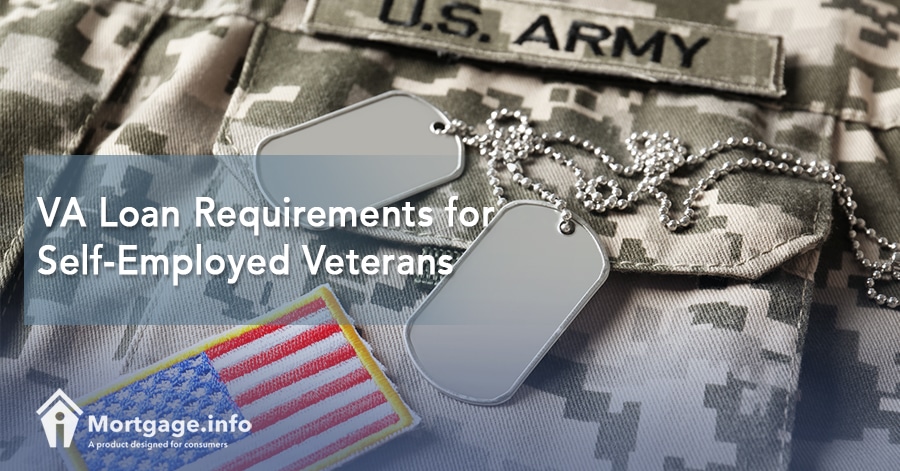
Self-employed veterans have the same home loan benefits as an employed veteran. The difference is in the requirements. Lenders have to be a little stricter with the self-employed borrower because of the risk they pose. Working for yourself might be a part of the American Dream, but it’s a high risk for lenders as your income is less reliable than if you worked for someone else.
Get Matched with a Lender, Click Here.
Keep reading to learn the requirements for veterans working for themselves.
Who is Self-Employed?
First, let’s look at who the VA/lenders consider self-employed. Obviously, a veteran that wholly owns his own business is self-employed. But, there are other borrowers that the VA considers self-employed as well:
- Borrowers that own more than 25% of a company
- Borrowers that freelance for a majority of their income
- Borrowers that do contract work and receive a 1099
If any of these apply to you, the self-employment VA guidelines will apply.
Proving Your Qualifications for a VA Loan
As a self-employed borrower, you run a higher risk for the lender. Lenders need to see that your company is financially stable and that your personal finances are in order. Owning your own business means that you are responsible for all of the business expenses. This can leak into your personal finances, making it hard to afford your mortgage payments. In order to avoid default, the VA requires the following:
- Two years of personal income taxes with all schedules
- Two years of business income taxes with all schedules (in some cases)
- Profit and Loss Statement documenting your YTD earnings
- Business balance sheets for the current year
Lenders need your tax returns (personal and/or business) to determine your income. They look to see if you claimed a business loss. If you did, the lender must use that number for qualification purposes. Obviously, if you claim a loss, you won’t get a mortgage.
Click to See the Latest Mortgage Rates.
Keep in mind that lenders use your net profit, not your gross profit. This differs from an employed borrower who can use his gross income to qualify for a mortgage. Lenders take into consideration all expenses that you write off on your taxes. The net income that you claim is the income they use for qualification purposes. It may be to your benefit to hold off on those write-offs for a year or two in order to prove that you make ample money to secure a mortgage.
The VA Loan Requirements
Aside from the documents you must provide, the VA has the same rules for qualifying for a VA loan as the employed borrower. This means:
- Minimum credit score of 620
- Maximum total debt ratio of 43%
- Enough disposable income to meet the requirements for your location and family size
- Steady employment
- Decent credit history
Some lenders may have stricter requirements for the self-employed borrower, because of the risk they pose. For example, they may require a higher credit score than 620 or want to see a lower debt ratio than 43%.
Each lender has their own requirements. If you are self-employed and don’t have a high credit score or low debt ratio, all you have to do is shop around. Each lender will have a different threshold for risk. You may find a lender willing to fund your loan despite the higher risk you pose.
What lenders want to see is consistency and reliability. If your income drops from one year to the next, that’s a red flag. If your income is stable or steadily increases, though, it could show lenders that you are a good risk. The best thing you can do to increase your chances of approval is to make sure your credit history is stable and that your debt ratio is low. If you can afford it, you may even want to make a small down payment on the home to offset the risk of your self-employment.
